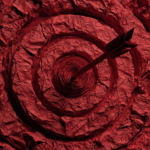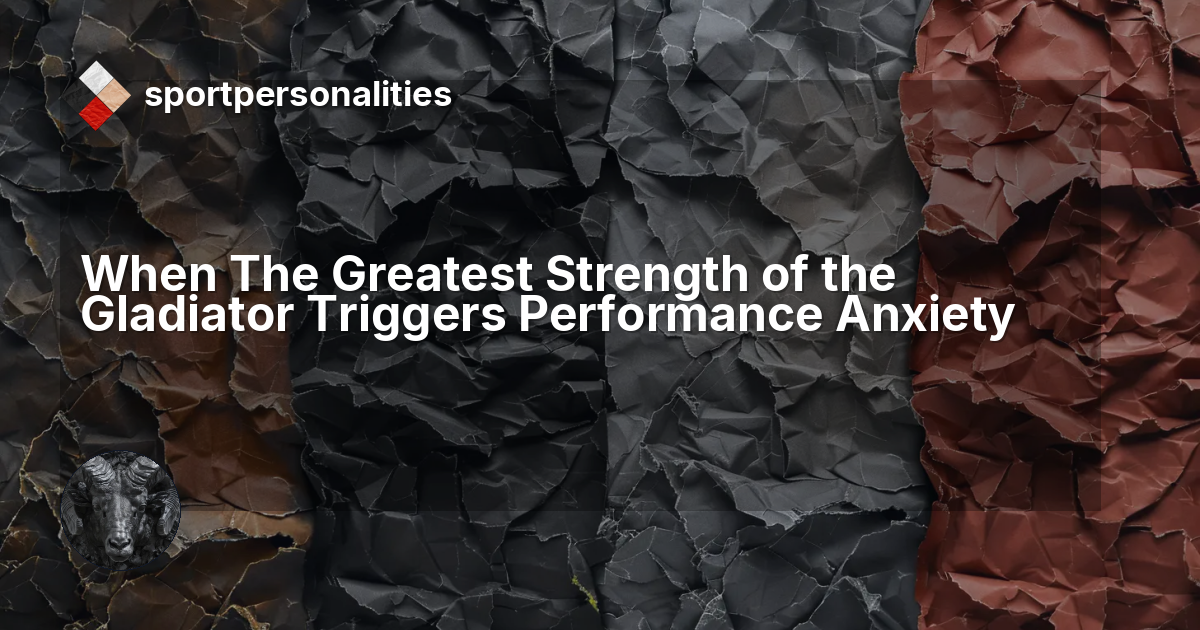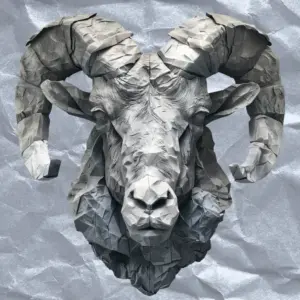The best competitors often face a unique mental challenge. For  The Gladiator (EORA), that strength-turned-weakness creates what we can call the Warrior's Paradox: their competitive
The Gladiator (EORA), that strength-turned-weakness creates what we can call the Warrior's Paradox: their competitive  Drive can become a source of anxiety in non-competitive settings.
Drive can become a source of anxiety in non-competitive settings.
Picture a tennis player who feeds off the energy of a packed stadium during a championship match. They read their opponent's serve like a book, adapt their strategy mid-set, and thrive under the brightest lights. But put them in a practice session with no crowd, no rankings on the line, and no clear adversary to defeat, and suddenly their confidence crumbles. They struggle to find motivation without direct competition.
The Warrior's Paradox occurs when a competitive drive becomes a source of anxiety in non-competitive settings, rather than representing a character flaw or weakness.
But rather than a character flaw or a sign of weakness this is the natural consequence of a competitive personality that's wired for battle but struggles in the spaces between conflicts.
The Gladiator's Battle-Ready Brain
The Gladiator operates with a mindset that's wired to compete against others. They perform best against direct opponents because pressure, to them, signals opportunity.
Consider a boxer stepping into the ring for a title fight. While other fighters might feel overwhelmed by the magnitude of the moment, The Gladiator feels energized and focused. They can quickly adapt to what their opponent does and execute complex combinations while responding to changing defensive patterns.
But here's where the paradox emerges: remove the opponent, and they often lose focus and motivation.
When Warriors Face Empty Arenas
The Gladiator's performance anxiety typically surfaces in three specific scenarios, each representing a different type of competitive void.
First, the practice session. Put a Gladiator-type athlete in a training environment with no clear opponent to defeat, and they often struggle to maintain the intensity that defines their competitive performances. A soccer striker might dominate during scrimmages where they can outmaneuver defenders, but lose focus during technical drills where they're shooting at an empty net. Without someone to beat, they struggle to stay engaged.
Second, the waiting game. The Gladiator thrives in the heat of competition but often struggles with the periods leading up to it. A track athlete might feel completely confident during the actual race but experience intense anxiety during warm-ups or while sitting in the staging area. Their mind, trained to engage with immediate competitive threats, begins creating imaginary battles with hypothetical opponents.
Third, the undefined competition. When The Gladiator faces situations where the opponent isn't clear or the victory conditions are ambiguous, anxiety creeps in. A basketball player might excel in traditional five-on-five games but struggle during skills competitions where they're competing against time or abstract standards rather than flesh-and-blood opponents.
The Validation Dependency Trap
The Gladiator's core drive centers on proving superiority through direct competition and earning external recognition. This creates incredible motivation when victory and defeat are clearly defined. But it also creates a psychological dependency on external validation that can trigger anxiety when that validation becomes uncertain or delayed.
Think about a gymnast who performs flawlessly during head-to-head team competitions but struggles during individual routines judged solely on technical merit. In team settings, they can channel their competitive fire against opposing gymnasts. But when performing alone for judges using complex scoring systems, they lose the clear opponent dynamic that normally fuels their confidence.
This validation dependency becomes particularly problematic during training cycles, when The Gladiator struggles to maintain motivation during solo work without immediate feedback in the form of wins and losses.
This validation dependency becomes particularly problematic during training cycles. The Gladiator might excel during intense practice battles against teammates but struggle to maintain motivation during solo conditioning work or technical refinement sessions. Without immediate feedback in the form of wins and losses, they begin to question whether their efforts matter.
The Opponent Fixation Effect
Another source of performance anxiety for The Gladiator stems from their tendency to become overly fixated on specific rivals. This strength allows them to prepare meticulously for known opponents and develop targeted strategies. But when facing unfamiliar competition or when their primary rival is absent, they can feel mentally unprepared.
A tennis player might spend months preparing for a showdown with their top-ranked rival, only to have that opponent withdraw due to injury. Suddenly, facing a different player in the finals, they experience anxiety because their mental preparation was so focused on one specific opponent.
This opponent fixation can also create anxiety around the fear of not having worthy adversaries. The Gladiator's self-worth becomes tied to the quality of their opposition. Victory against a weak opponent doesn't provide the same psychological satisfaction, while the absence of strong opponents can leave them feeling lost without strong opponents.
Recalibrating the Warrior Mindset
Instead of fighting this competitive nature, gladiator-types can expand their definition of worthy opponents. This requires strategic reframing of anxiety-inducing situations.
During practice sessions, The Gladiator can learn to compete against their previous best performances, treating personal records as opponents to defeat. A swimmer might focus on beating their best split times for each segment of their race, creating multiple competitive battles within a single training session. Sports that emphasize personal improvement like swimming, cycling, and distance running work particularly well for this approach.
For pre-competition anxiety, The Gladiator benefits from reframing waiting periods as part of the battle itself. Instead of viewing warm-ups as dead time, they can approach them as the opening moves in a larger strategic game, gathering intelligence and fine-tuning their competitive weapon. Combat sports and racket sports naturally provide this type of preparation phase.
The Gladiator's anxiety actually shows how competitive they are. The solution is channeling that competitive energy toward appropriate targets, even when traditional opponents aren't available.
The key lies in understanding that this anxiety actually shows how competitive they are. Their brain is designed to surge with competitive energy, and when that energy has nowhere to go, it turns inward and creates anxiety. The solution is channeling that energy toward appropriate targets, even when traditional opponents aren't available.
Team sports like basketball, soccer, and hockey can help by providing multiple mini-competitions within a single game. Boxing, wrestling, and martial arts offer clear one-on-one competition. Even individual sports like tennis and badminton create the direct opponent dynamic that fuels The Gladiator's performance.
Next Steps: Finding Your Battle
Ready to harness your competitive fire more effectively? Start with these practical steps:
First, identify your anxiety triggers. Notice when you feel most confident versus when anxiety creeps in. Track whether it's the absence of opponents, unclear victory conditions, or lack of immediate feedback.
Second, experiment with reframing practice sessions as competitive opportunities. Set specific targets to beat, time yourself against previous performances, or create internal competitions during training.
Third, consider adding a sport that provides the opponent-focused competition you crave. If you're stuck in solo training, try joining a tennis league, signing up for boxing classes, or finding pickup basketball games.
Fourth, work on expanding your definition of "worthy opponent." This might mean competing against the clock, against your past performance, or against specific technical standards.
Embracing the Warrior's Journey
The Warrior's Paradox shows how being super competitive can sometimes backfire when applied in the wrong contexts. The Gladiator who learns to navigate this paradox doesn't just become a more complete competitor; they become a more adaptable warrior.
The goal isn't to eliminate their need for competition but to broaden their understanding of what constitutes a worthy battle. Every practice session, every moment of uncertainty, every period of waiting becomes an opportunity to compete against the forces that would undermine their performance when competition matters most.
In the end, The Gladiator's performance anxiety serves as a reminder that even warriors need to choose their battles wisely, including the battles they fight within their own minds.
This content is for educational purposes, drawing on sport psychology research and professional experience. I hold an M.A. in Social Psychology, an ISSA Elite Trainer and Nutrition certification, and completed professional training in Sport Psychology for Athlete Development through the Barcelona Innovation Hub. I am not a licensed clinical psychologist or medical doctor. Individual results may vary. For clinical or medical concerns, please consult a licensed healthcare professional.





